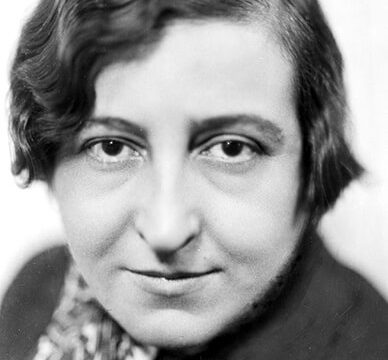One of the more interesting advantages to writing about people whose works are in public domain means that, in theory, you can track them down on YouTube. Which in fact is the case with Germaine Dulac. None of her work is on the Criterion Channel. I did manage to find one of them on another streaming service—which did not translate the title cards, so I must admit that I have little real certainty about what was going on. And then, I decided to see what was on YouTube, and discovered pretty much all of it, from what I can tell.
There is a lot written about how the greatest era of experimentation in film is the silent era. I do not, quite frankly, feel like hashing this out here and now. But it does seem that Dulac felt that way. Her career as a narrative filmmaker pretty well ends with the coming of sound, at which point she switched to working on newsreels, working for Pathé and then Gaumont. And before her death in Occupied Paris in 1942, she worked to keep the Nazis from destroying a certain amount of French film.
A lot gets written, too, about German Expressionism; less is written about French Expressionism, the movement Dulac seems to have been part of. She filtered stories through her feminism, too. Not everyone thinks about feminism in the early twentieth century, but it was definitely there, and I’m sure there are definitely things influenced by her sexuality. She was married to Louis-Albert Dulac; after her divorce, she was in a lifelong relationship with Marie-Anne Colson-Mallevile.
I feel as though a lot of the people who aren’t talked about in the history of film, even when they’re strongly influential to it, are women. Dulac worked with Alice Guy and was the second female director in France, after Guy. I also feel like it’s hard to get a grasp on French film sometimes because there are just so many movements, and you mostly talk about French film in connection to whatever movement they’re in. Dulac appears to have straddled several, in her short career as a narrative filmmaker, and she was a woman, and she appears to have been bisexual, and who talks about that?
What fascinates me, though, is the idea that the French press didn’t even want to acknowledge her in death and took three weeks to publish obituaries of her. Admittedly, you know, 1942, and that’s not a time that France was having slow news days. But it took serious pressure to get the obituaries published, and one Charles Ford said they were “disturbed by her impure origins.” I don’t know what he meant by that, and Wikipedia isn’t telling me.

